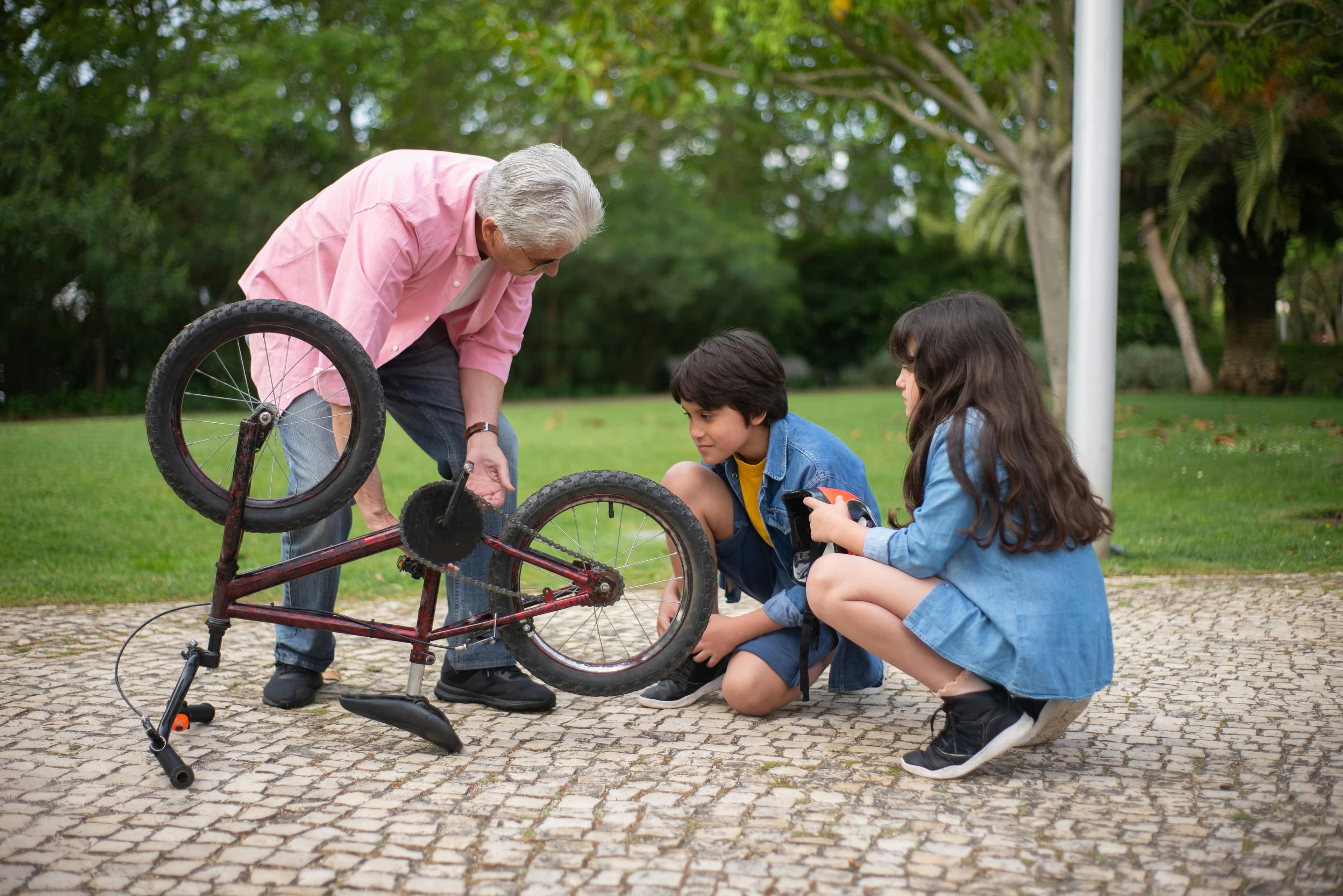Individual guidelines
Our social well-being is shaped by many factors, including some outside of our control. Every person can take steps to improve their social life. The guidelines below offer evidence-based recommendations to help individuals meet their social needs.
1 / 6
Make social connection a priority throughout your life
Social connection is a basic human need for people of all ages, but meeting your social needs often requires time, effort, and intentionality.
- Be thoughtful and aware of how much and what types of social connection you're getting and whether you’re getting enough social connection.
- While recognizing that relationships are not always easy, strive to pursue meaningful, satisfying, and positive connections with others.

2 / 6
Cultivate social confidence in yourself and others
Sometimes how we feel about ourselves and others makes social connection intimidating and difficult. These feelings are normal and can be overcome.
- Be open to social interaction and connecting with others.
- Start by taking small steps and look for manageable ways to expand your capacity.
- Be compassionate with yourself and others.
- Know that it often takes time to improve your social wellbeing.
- If you find it hard to overcome negative thoughts and feelings about yourself or about your social interactions with others, get support, including, if possible, from trained mental health professionals.

You're not alone in wanting more connection!
- Percent of Canadians who feel they spend too little time hanging out.
- 48%
- Percent of Canadians who wish they had more friends than they do now.
- 37%
- Percent of Canadians who report feeling lonely 3 days per week or more.
- 26%
3 / 6
Build a strong social network with a variety of kinds of relationships
A strong social network includes a variety of social connections across different domains of your life. This includes interactions of varying depth and quality as well as a variety of different types of relationships in different areas of your life.
- Diversify where you get social connection from; don’t rely on just one person to meet all of your social needs.
- Work to have positive and meaningful connections in different parts of your life, including at work or school, home and neighbourhood, and with other groups you are connected to or share things in common with.
- Be open to meeting new people and socializing with others, even those you may not currently know or be close to. This includes connecting with people who might be different from you.

4 / 6
Invest in getting enough social connection
Individuals need regular and frequent social interaction. This includes spending time with those we’re close to as well as with other people we are less familiar with.
- Seek out opportunities for near-daily social interactions, even if brief.
- If possible, spend quality time every week socializing with the people closest to you or with those you would like to become closer to.
- Prioritize meaningful and satisfying relationships over superficial and less fulfilling ones, but remain open to new and deepening relationships.

"Health and well-being for a member of our species requires, among other things, being satisfied and secure in our bonds with other people."
“The ultimate solution to loneliness lies in each of us. We can be the medicine that each other needs. We can be the solution other people crave. We are all doctors and we are all healers.”
5 / 6
Maintain and deepen your relationships with others
Positive relationships are among the most important contributors to our health and happiness. However, all relationships require care and attention to thrive.
- Strive to develop a close circle of supportive people you can trust and count on.
- Care for others by fostering mutually-beneficial, intimate, open, and trusting relationships.
- Pay attention and be responsive to the social needs of others.
- Learn and practice the social skills needed to navigate social challenges and maintain healthy relationships, including good communication, compassion, and boundary-setting.

6 / 6
Seek out face-to-face interactions and use technology wisely
Technology is an important tool for facilitating social interactions, but it is important to ensure that we do not replace face-to-face connections with online ones.
- Ensure you have plenty of opportunities for face-to-face, in-person social interactions with others.
- When using technology, use tools and platforms that benefit and strengthen your relationships with others, such as those that help you organize social activities or interact meaningfully with others while you are apart.
- Limit passive use of technologies when they reduce your social contact with others, distract from social interactions, monopolize your time and attention, or negatively impact how you feel about yourself or others.

About
Understanding Our Guidelines for Individuals
Despite living in an ever-more interconnected world, many individuals experience profound loneliness and social isolation. This is because building a healthy social life and maintaining positive relationships can be hard and requires significant investments of time and energy. Furthermore, our social wellbeing is the product of many factors—some within and some beyond our control. Indeed, our social lives are shaped by our biological and genetic makeup; various economic, political, and environmental influences; and pervasive cultural norms that shape how we socialize, interact, and connect with one another.
Nevertheless, building a healthy social life requires our individual attention, effort, and action. Indeed, how we choose to live our lives and interact with others determines whether our own social needs are met and contributes to the overall social fabric of our communities. By adopting a proactive, prosocial approach, individuals play an important role in shaping our collective social wellbeing.
In providing individual-level guidelines for social connection, we aim to empower individuals by providing practical, evidence-based strategies to build and sustain meaningful relationships. By focusing on personal actions and behaviours, individuals can take proactive steps to enhance their social wellbeing and the wellbeing of those around them. This includes being mindful of our social behaviours and relationships, actively connecting with others in our families and communities, and developing the necessary skills to navigate the complexities of interpersonal relationships.
However, in providing these guidelines we also acknowledge that individuals vary in their social needs and capacities. Just as food and nutrition guidelines may not work for everyone—such as people with food allergies or other sensitivities or who do not have access to healthy food choices —guidelines for social connection may also apply differently to different people. As such, our recommended guidelines are meant to be flexible and throughout this document we aim to provide additional considerations to help individuals adjust the guidelines to fit their unique situations.
We also acknowledge that many people in the depths of loneliness may find taking on these guidelines difficult. Therefore, it is important to remember that these guidelines are intended as a prevention tool and should not be thought of as a replacement for the individualized supports and services that people struggling with loneliness and other mental health conditions may need.
In summary, we recognize that social wellbeing is a collective effort and that the individual-level guidance provided in this section will look different for different people. Nevertheless, the guidelines aim to support the promotion of social wellbeing, particularly in contexts where collective efforts have already been undertaken to improve the social environments in which individuals find themselves.

